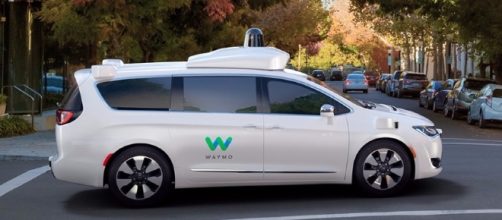Heat can mess up a lot more than just one’s hairstyle. Just like the human body, even electronic items can’t withstand extreme heat for too long. Given that most of the operations that are carried out in the society these days are somehow or the other electronic by nature, it is important that they are tested before completely exposing them to the naked Sun. On a similar effort, Alphabet’s self-driving automobile initiative, Waymo is all set to test its own fleeting of autonomous Vehicles on the Death Valley streets of California.
Work is still under process
As reported by Digital Trends, the testing is apparently being carried out by the company in order to check whether its self-driving Chrysler Pacifica Hybrid mini-vans can withstand the Sun. It seems like Waymo wants to ensure that its set of self-driving vehicles are not only safe but sufficiently reliable as well. They also want to send a global message indicating that they are environment-friendly. As can be recalled, Waymo introduced the aforementioned set of mini-vans earlier this year. At that time, the company claimed that the cars were ready to be driven and had already received the required certification from the authorities for the same.
Heat is an issue
As far as the automobile industry is concerned, one of the most important factors that the former has to consider is whether their vehicles can meet the actual standard of extreme heat.
A Waymo senior thermal engineer reportedly said that autonomous automobile vehicles also generate a lot of heat themselves. Therefore, the amount of heat generated added by the heated environment, calls for the cooling down of the situation almost immediately. Since consumers can’t keep ensuring that their vehicles aren’t too heated up, Waymo has designed a system that remains cool even under heated situations. This is apparently being done in order to eliminate the need to even check whether the vehicle has been heated up.
Waymo wishes to test its latest line-up of autonomous vehicles under all the extreme weather conditions. Since the vehicles are autonomous by nature; there are many other important factors that Waymo needs to check before the fleet is officially rolled out.
The Waymo cars are expected to arrive by the end of 2017 or the beginning of 2018. However, Google hasn’t provided any confirmation as yet. Therefore, it remains to be seen what exactly will take place. The company also fell into trouble with Uber, with only further delayed the launch of the autonomous initiative.


